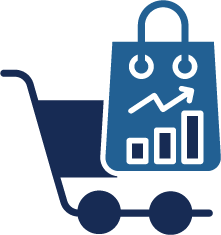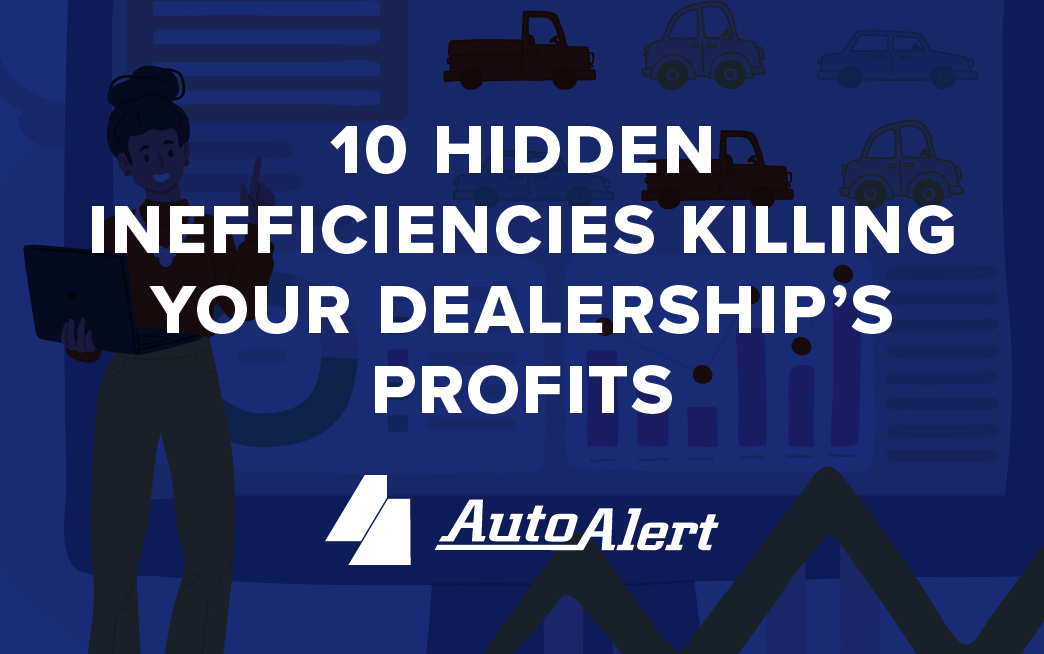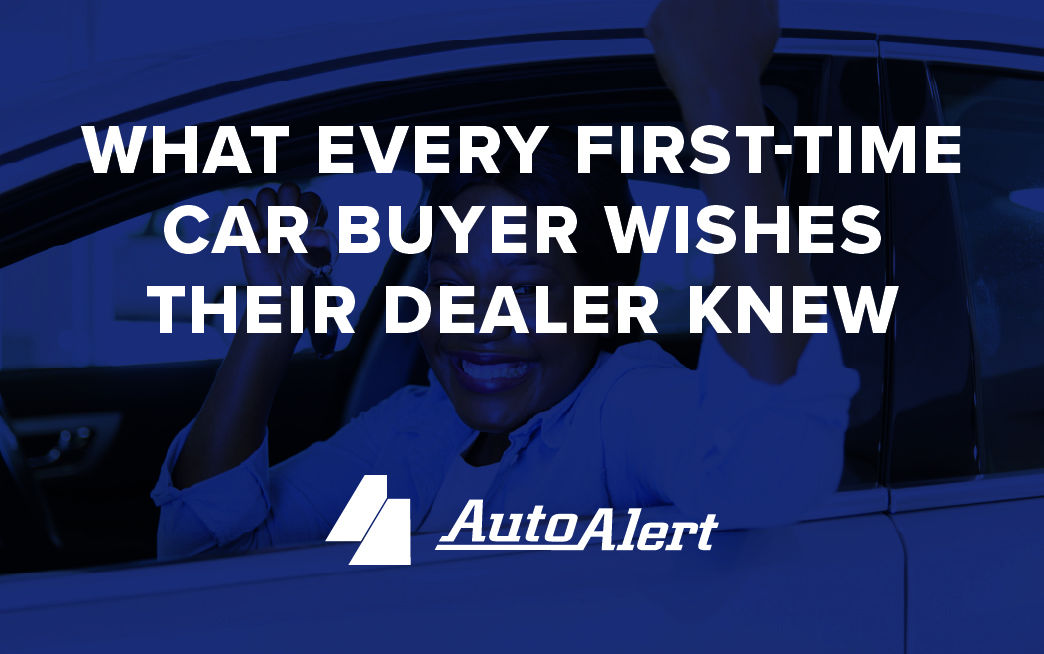Benefits of CRM Software for Small and Medium Car Dealerships
An automotive CRM isn’t just for large dealerships. Learn how small and medium-sized car dealerships can boost sales and improve customer service with CRM.
Modern dealership CRM advances aren’t just for large dealerships or groups. CRM for small dealerships is just as necessary as it is for the big guys. Organizational systems and profit targets are basic objectives for any business, and it’s just as important for small and medium-sized dealerships to obtain the best tools to achieve their goals.
What Dealership CRMs Do
A Customer Relationship Management (CRM) database allows a company to easily access and view interactions such as conversations, emails, requests, products purchased, and specific customer solutions. Used as a tool to manage and analyze consumer actions and behaviors, CRMs aim to improve business, drive incremental sales, and retain customers by continuously tracking and compiling pertinent shopper information.
According to Gartner, Customer Experience Management is “the practice of designing and reacting to customer interactions to meet or exceed customer expectations and, thus, increase customer satisfaction, loyalty, and advocacy.”
The Rift
Because of shifting consumer trends, the automotive industry has undergone considerable change, including the consolidation of smaller dealerships within larger dealership groups. Single-point stores and family-owned dealerships have found themselves under greater competitive pressure, with traditional ad dollars and marketing spending needing to catch up with the buying power of dealership groups.
While these challenges aren’t small matters, they aren’t insurmountable either. Every dealership, big and small, needs to look at doing business differently to engage with potential customers where and when they prefer to connect.
Let’s look at some challenges and see what this pivotal industry shift means for auto dealers:


Changes in Consumer Habits
The average age of a new auto buyer has increased, hovering around 53. The historically reliable younger demographic of auto buyers has been diluted due to increased financial obligations. The younger age groups also tend to live in urban areas where ride services and public transportation are prevalent.


The Rise of Online Auto Shopping
The direct-to-consumer online auto sales model is still relatively new in the industry, however auto buyers make most of their pre-purchase activities online. This means that car buyers are more educated about car costs, features and models by the time they reach a salesperson.


Consolidation of Dealership Groups
Big dealers have more resources to take advantage of. As large dealer groups acquire more single-point stores, family-owned dealerships become an exception rather than a rule. Even midsize dealership groups are joining auto-retail giants and investment firms, and this trend is expected to accelerate.
Why Do Small Dealerships Need a CRM?
It can be easy to assume that the deck is stacked against small dealers. But it’s important to note that the top five auto dealer groups combined only control about six percent of annual car sales. So, while the challenge for small dealerships is real, so is the opportunity. And the path to success runs straight through technology and customer service.
Utilizing a quality dealership CRM tool will give your sales team the power to fire up their numbers and reach the right customers at the right time—with valuable information that gives them an edge in the marketplace. Your dealership CRM is full of helpful information when your teams are armed with the knowledge that includes past sales, current online shopping, and even more customers.
A comprehensive CRM seeks to build well-rounded customer relationships and provide personalized experiences throughout every buyer journey while remaining focused on collecting and organizing useful data and serving it up to your sales professionals to help them successfully leverage consumer insights and gain valuable sales leads. With a strong CRM capable of housing and organizing up-to-the-minute shopper data, your dealership can be a sales and marketing powerhouse.
In short, a modern CRM is an employee retention tool for all dealers—and especially for small dealerships that can’t rely on an ever-revolving door of customers.


The Power to Reach Everyone
Successful customer experience management is a strategy that requires both employee processes and powerful technology. Your dealership’s CRM is important in knowing your customers, collecting data and information from various touchpoints, and analyzing that data to increase engagement.
Doing business in today’s market means building relationships, and the latest technology can help you do that. While it’s comfortable to rely on the familiar, such as existing CRM capabilities, it’s extremely beneficial to keep your eyes open and lean into powerful new capabilities that align with your dealership’s goals and help you reach an even greater number of in-market customers in new and innovative ways.
Consumers are on the lookout for dealerships that can relate to them (no matter the size of the dealership) and meet them where they are in their purchasing processes. For your dealership, that means being open to innovative ways of attaining shopper insights and reaching out earlier in their buyer journeys to build relationships that will ultimately lead to more sales.
One-Size-Fits-All Tools
Comprehensive CRMs will have AI built into their processes, and AI is within reach of every dealership, regardless of size. This is especially helpful for small dealerships who need more time, resources, or personnel to follow up with every customer who requests information online.
Automotive platforms like these perfectly fit auto sellers looking to match their communication with consumers’ behaviors. Through lead emails and text conversations, an AI for car dealerships can determine whether the prospective customer is ready to speak with a salesperson or needs to be nurtured until they are prepared to buy, all without human involvement.
Even if the lead doesn’t respond during the first, second, or third contact, the autonomous virtual assistant will remain polite and persistent until the customer’s buying intent is determined. They then pass prospects along when they express interest in speaking with a salesperson or booking a test drive appointment.
Let’s look at some challenges and see what this pivotal industry shift means for auto dealers:


Number of Customer Insights Provided
Are you receiving actionable insights and intelligent data, such as makes and models being shopped, changes in shopping intensity, and information regarding customers who are in equity? Valuable information such as this can guide your sales pros toward potential shoppers who are ready to buy.


Messaging and Communication Capabilities
Dealerships and customers are fast-moving, and it’s important to have a communication plan that’s efficient and reliable. Create internal strategies and optimize your CRM to get everyone on the same page.


Availability of Information
In order to facilitate the best and most efficient service, be sure customer status and information is easily accessible and available to everyone in your dealership
The Opportunity to Close a Deal Still Lands on the Sales Team
Even with digital retailing on the rise, most consumers will still visit dealerships in person for test drives and to sign paperwork. While technology can automate many routine tasks, including lead follow-up and trade-in appraisals, small and large dealerships can boost their value by treating customers more like clients.
While enticing a customer might result in a single sale, dealerships that shift operations to reflect when a customer becomes a client do better at returning them for service and maintenance and their next vehicle purchase. To keep auto buyers in this loop, it helps to nurture your relationship with them through various channels, including emails, text messages, marketing materials, customer satisfaction surveys, etc.
Your CRM is as powerful as you make it. In the highly competitive automotive market, you must take the time to assess your dealership’s needs and your target customers’ needs to get the most out of your CRM. When you can reach your potential with the best CRM for small dealerships and offer customers exactly what they are looking for when they are looking for it, you’ll get a leg up on the competition, even the big guys.



